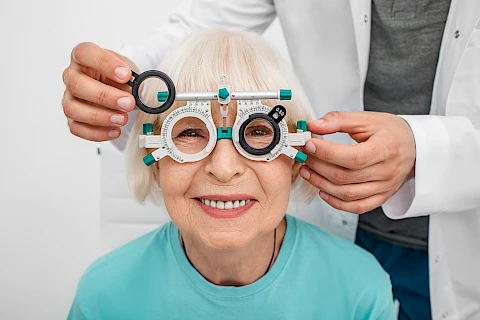
November marks Diabetic Eye Disease Month, a time to raise awareness about how diabetes can affect eye health, especially in seniors. Diabetes, a long-term condition, can take a toll on multiple aspects of health, with eye health being particularly vulnerable. Diabetic eye conditions can lead to vision impairment or even blindness if not managed properly. Understanding these issues is vital for seniors and their caretakers to help preserve vision and maintain quality of life, as Senior Helpers High Point will outline.
Diabetic Eye Problems
Diabetes can lead to several eye complications if not monitored and managed effectively. The most common diabetic eye disease is diabetic retinopathy, which occurs when high blood sugar levels damage the blood vessels in the retina, leading to leaking or bleeding and potentially causing severe vision loss.
People with diabetes are also more likely to develop cataracts, a condition that makes the eye's lens cloudy, affecting clear vision. Additionally, diabetes doubles the risk of developing glaucoma, a condition where increased pressure within the eye damages the optic nerve, leading to vision loss. Watch out for symptoms such as blurred vision, dark spots, flashes of light, or vision loss. Early detection and treatment are key to managing these conditions effectively.
Managing Diabetes for Better Eye Health
Maintaining good eye health begins with effectively managing diabetes. Keeping blood sugar levels within target ranges can significantly reduce the risk of diabetic eye problems. Regular monitoring and adherence to prescribed treatments are essential.
A balanced diet rich in fruits, vegetables, and whole grains supports overall health and aids in blood sugar control. Regular physical activity can help maintain a healthy weight and manage diabetes better. Always consult a doctor before starting a new fitness routine. Taking medications as prescribed by your doctor to control your blood sugar, blood pressure, and cholesterol levels is also vital for eye health.
The Value of Regular Eye Exams
Regular eye exams are a critical component of healthcare for seniors with diabetes. It is generally recommended that seniors have an eye exam at least once a year. During an exam, an eye care professional will assess vision and look for signs of diabetic eye conditions. Early detection of issues like diabetic retinopathy can lead to timely treatment, preventing severe vision loss.
Tips for Protecting Vision
There are several steps seniors and their caretakers can take to protect their vision on a day-to-day basis. Adopting a healthy lifestyle supports eye health. This includes a nutritious diet, regular exercise, and adequate hydration.
Wearing sunglasses protects your eyes from harmful UV rays and can prevent eye problems over time. If you smoke, quitting can have substantial benefits for your eye health. Smoking can exacerbate conditions like cataracts and glaucoma, so stopping can help preserve sight.
Contact Senior Helpers for Help Managing Eye Health
Regular blood sugar monitoring, healthy lifestyle choices, and consistent medical follow-ups are all vital in managing eye health. Eye exams should be prioritized to catch any issues early on. Remember, protecting your vision means taking proactive steps today. For expert senior care services, contact us at Senior Helpers High Point, serving Asheboro, High Point, Pleasant Garden, Thomasville, and Trinity.